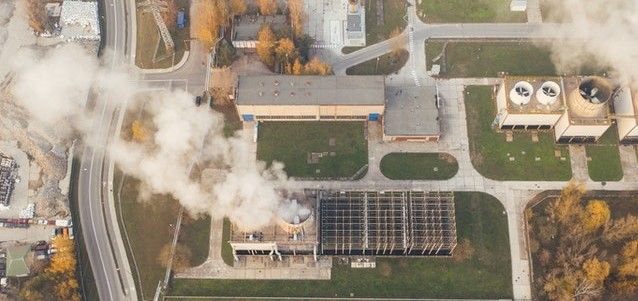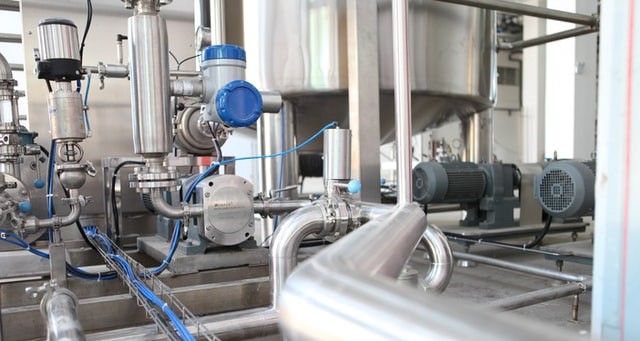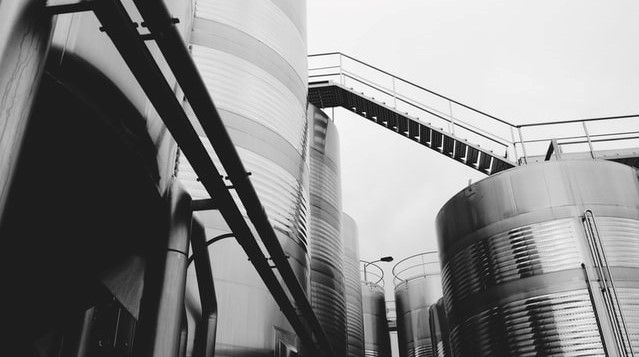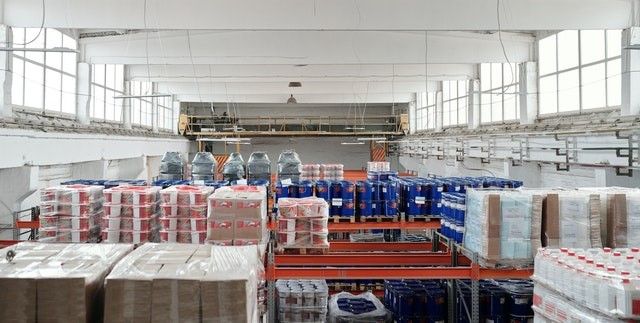The good news for European industry is that stopping Russian gas imports would not be fatal.
The Germany economy, for example, is the manufacturing base which has become most reliant on fossil fuel imports from the East. Yet a research team led by Rüdiger Bachmann of the University of Notre Dame, found the effect of an embargo on Russian energy imports would be “substantial but manageable”.
Specifically, the economist modelled how business and government would react and predict that German GDP would decline by between 0.5% and 3%. The depth of the impact varying in the model based on how quickly industry reacted to sourcing alternative power and raw materials.

This hit to the German economy is less than that caused by the COVID pandemic, although certain areas, such as the local economies around industrial chemical complexes would suffer greatly.
How will Chemical Industries React to Sanctions on Russian Gas?
Fortunately, there are a number of ways that the chemical industry and government can adjust to survive without Russian fossil fuels.
European businesses have had to handle trade embargoes and sanctions before, and have always found a way to keep calm and carry on production.
For example, during WWI when the Royal Navy blocked imports into Germany from the rest of the world, engineers at BASF devised new chemical processes to make nitric acid without ammonia. A new chemical facility was then constructed to produce the nitric acid needed to manufacture explosives without ammonia imports.

During this current threat, policies across Europe could be adapted to help companies and the wider chemical industry adjust to life beyond Russian gas, coal, and oil. And while transitioning, governments could do some or all of the following:
· Offer incentives to use substitutes: Tax breaks and subsidies could be offered to companies that use, invest in, or supply fossil fuel substitutes.
· Prevent bailouts for current high fuel bills: Offering to ease the burden that companies and individuals are experiencing from rapidly growing energy bills may seem helpful. However, in the medium term, this policy delays industry and households from taking action and keeps the European chemical industry dependent on Russian fossil fuel.
· Investment in energy infrastructure: Governments should assist and encourage the development of the national power grid to make the import and transfer of energy from friendly nations smoother. This investment could include improved power links to windfarms, better cross-border assistance, or constructing an LNG terminal to aid imports from American or the Middle East.
· Act quickly: Sanctions applied to Russian oil and gas now (during the summer months) allows suppliers and industrial consumers to prepare themselves for potential shortages when winter comes.
· Prepare and promote unreasonable prices for fossil fuels: While in the short and medium-term, high-energy prices restrict industrial production and domestic prosperity, in the long-term, it encourages change to renewable/domestically produced energy. Policies could include, for example, a tax on any imported fossil fuels or higher tariffs on feedstock sourced from Russia.
What can European chemical producers do to adjust more quickly?
Improved efficiencies will be difficult to find as European industrial chemical production has been focused on reducing waste/minimising costs for years.
Consequently, for example, the chemical complex at Ludwigshafen in Germany (like others in around the world) already has highly effective reuse and recycle programs. Such that the managers of Europe’s largest chemical production complex can claim that as much as 94% of the chemicals that the plant imports end up in a chemical product.

Behaviour that Chemical Producers Should Avoid
The chemical industry should also be wary not to act against its own interest as happened recently during the global semiconductor shortage created by the pandemic-induced supply chain disruption.
With a diverse demand for computer chips from manufacturers of cars, household appliances, laptops, phones, and gaming machines, there was a level of fear in the supply chain which led to the hoarding of stock and raw materials by some players in the supply chain.
As Susan Mair, a senior analyst at Sustainalytics notes, such behaviour sends, “… misleading demand signals upstream in the supply chain, encouraging aggressive capacity investment. However, as semiconductor production capacity takes many years to build, we will most likely see an over-supply of chips in the next few years, causing not only price volatility but also social waste in the long run.”
The war between Ukraine and Russia may cause another negative reaction among semi-conductor manufacturers, because, as Forbes magazine notes, “[Russia] supplies “35% of the U.S.’s palladium, a rare metal used to create semiconductors.”

Given the equally diverse and varied nature of the global chemical industry (and its inter-connected supply chain) the hoarding and price-gouging of raw materials is a real possibility this winter.
There are clearly numerous traps and pitfalls for the European chemical industry to avoid in the coming months. But at the same time there is the possibility to adopt policies and business practices which will produce a more independent, greener, and streamlined chemical industry.
The Russian aggression, destruction of industry, loss of business, homes, and lives in Ukraine is nothing less than tragic. However, if politicians and chemical industry chiefs act wisely it may, at least, have a silver lining.
Photo credit: Marcin Jocwiak on PIxabay, Tormius on Unsplash, Crystal Kwok, Maksym Kaharlytskyi, & Tiger Lily on Pexels